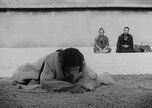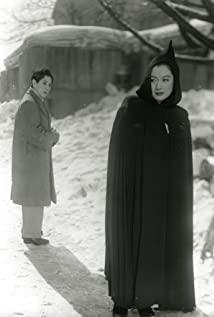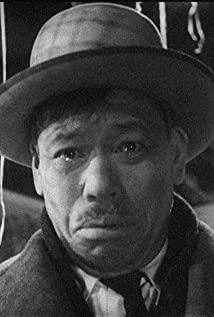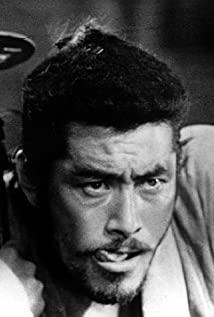---------------------------- ----------------------------------
"Rashomon" is an adaptation of Akutagawa Ryunosuke's novel "In In the Bamboo Forest". (There is still a difference between the film and the novel) In the film, the narratives of the woodcutter, Tajomaru, the samurai (Take Hiro) and his wife (Masha) constitute the main narrative body. This way of narration has the artificiality of destroying the illusion of reality, which also provides a preliminary condition for the uncertainty of the film's narrative to a certain extent. There are gaps in the narratives of the four woodcutter, Tajomaru, samurai (Takehiro) and his wife (Masha) in the film:
1. The narration of the robber Tajomaru: After getting the woman, due to the woman's request, One of the two must die, so the robber untangles the ropes, engages in a fair duel with the samurai, and finally kills him with a long sword by superior martial arts.
2. Woman's narration: After the robber raped her, she ran away. She hugged her husband and cried bitterly, only to see him staring at her with extremely contemptuous and cold eyes. She was ashamed, took out a short knife and passed out, only to wake up to find that her husband was dead with her short knife stuck in his chest.
3. The samurai narrative: After the robber succeeded, he asked the woman to go with him. The woman agreed, but the robber had to kill the tied samurai first. Only when the robber realized that the woman was so vicious, he handed her over to the samurai for his disposal. Hearing this, the woman jumped up and ran into the depths of the woods, and Tajomaru chased after her. At this time, Wu Hong picked up the dagger and committed suicide.
4. The woodcutter's account (second time): The robber asked the woman to follow him, and the woman untied the rope that bound the samurai, implying that the two would fight. After the husband refused and reprimanded her, the woman's outburst of dissatisfaction with them stimulated the two and finally made them take up arms. In the end, the robber killed the samurai, and the woman was frightened and fled.
So in any case, at least two of the first three narratives lied, and even all three lied. Each narrator is in conflict with other subject consciousness, and cannot be incorporated into a unified whole, much less consistent with the implied author or the general values of the work. The woodcutter's testimony was also unreliable. He lied in the first narration, and also concealed the truth of stealing the short knife. In this way, each statement is independent, each constitutes a closed space, and they do not seem to have an identity. In fact, although everyone's statements are different, their inner motivations are the same, all for the purpose of personal self-interest, thus reflecting the dark side of human nature.
At the end of the film, the handyman peeled off the baby's clothes to maximize the display of this black human nature and the selfishness of people to the point where there is nothing to add. Of course, the film doesn't end there. The handyman left, the deeply touched woodcutter adopted the baby, and the walking monk said, "Thanks to you, I can still trust people." This is not only the walking monk's testimonial, but also The film's beautiful expectations of the good side of human nature.
View more about Rashomon reviews











